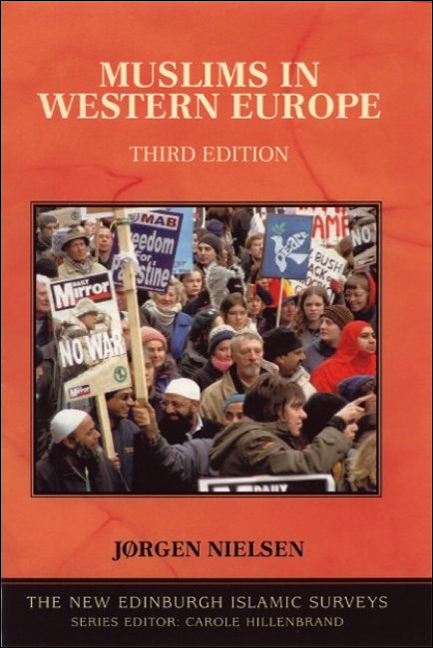Preface
Published online by Cambridge University Press: 20 December 2017
Summary
More than twenty years have passed since the first edition of this book. However, its structure and its driving questions have stood the test of time remarkably well. Still, the need for an updated version has become obvious as the field has developed and the legal and political structures of countries have changed. New Islamic organisations have taken the stage, and some old ones have lost influence. Having taught courses on Islam in Europe and benefitting from Jorgen Nielsen's book, I found the need for an update pressing and contacted the author asking if he considered a fourth edition. As it happened, I ended up responsible for the revisions instead, but Nielsen has assisted both with advice and proof reading, possibly becoming more involved than he at first meant to.
The history of an integration process
When Jorgen Nielsen penned the first edition of the book, western Europe was slowly becoming aware of a demographic change that was taking place. The book was timely, up to date, and yet scholarly, written by a historian who was among the first researchers to seriously consider the new Muslim presence in Europe. As time has passed and the new editions have been prepared and published in 1995, 2004, and now in 2015, the original part of the book describing the late 1980s and early 1990s has changed character and is now describing an important, transitional phase in the history of Muslim integration in western Europe. Reading the book today, a pattern emerges that was not there from the beginning. Rather, it has been created by the passing of time and been caught by the updates. If comparing the first faltering steps taken by Islamic organisations in the 1970s with the, at times, highly professionalised, often legally recognised, Muslim organisations of today, the development becomes striking. Muslim organisations have learnt to adapt and make space for themselves through trials and errors, a development that can be observed in all western European countries. Some have received external aid from, for example, the Diyanet, the Turkish Department of Religious Affairs, which sends out paid imams and helps out with organising. Others have been built up through local individual initatives when trying to take a stand in a single question – like the possibility of serving halal food at the local school.
- Type
- Chapter
- Information
- Muslims in Western Europe , pp. vi - xiiPublisher: Edinburgh University PressPrint publication year: 2015



